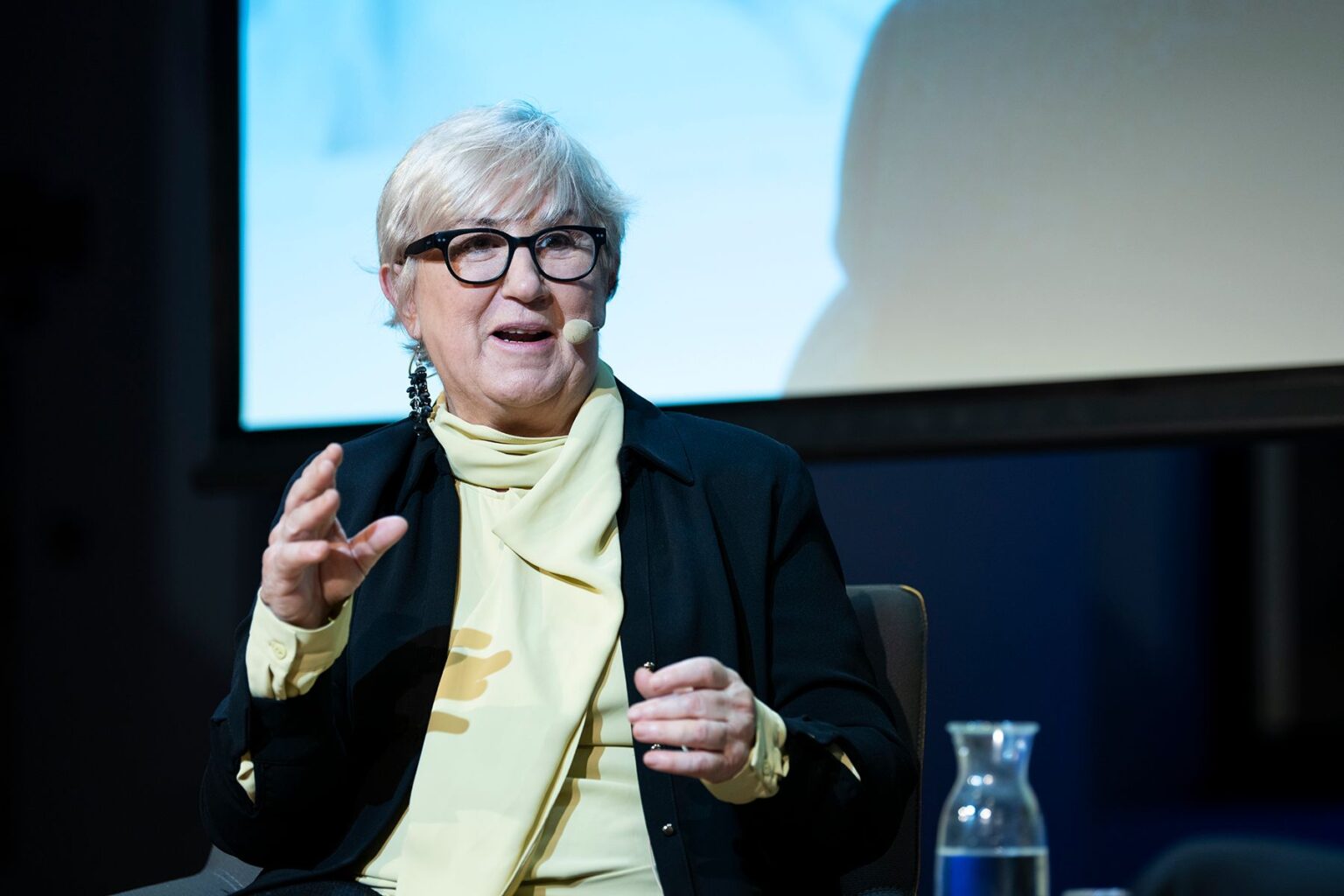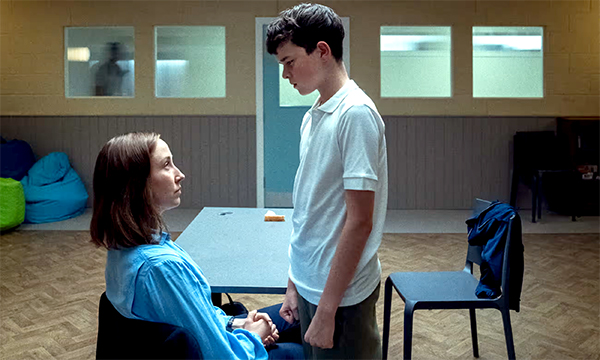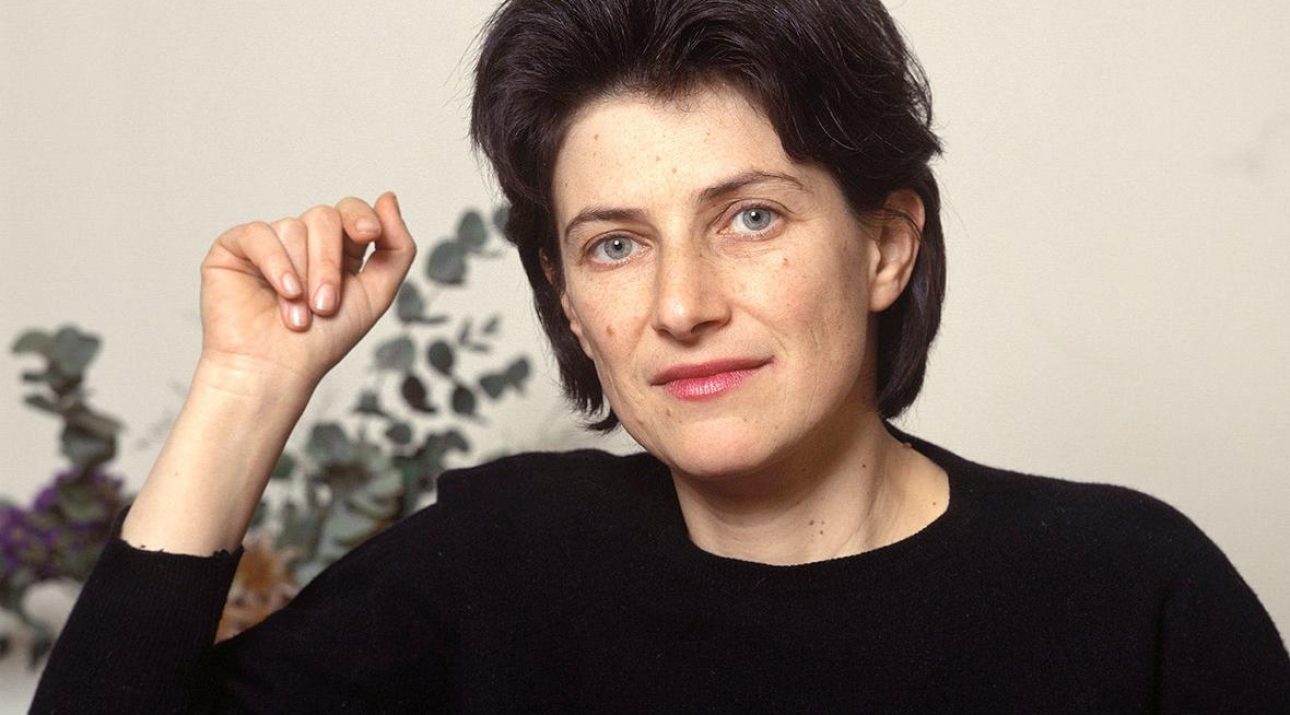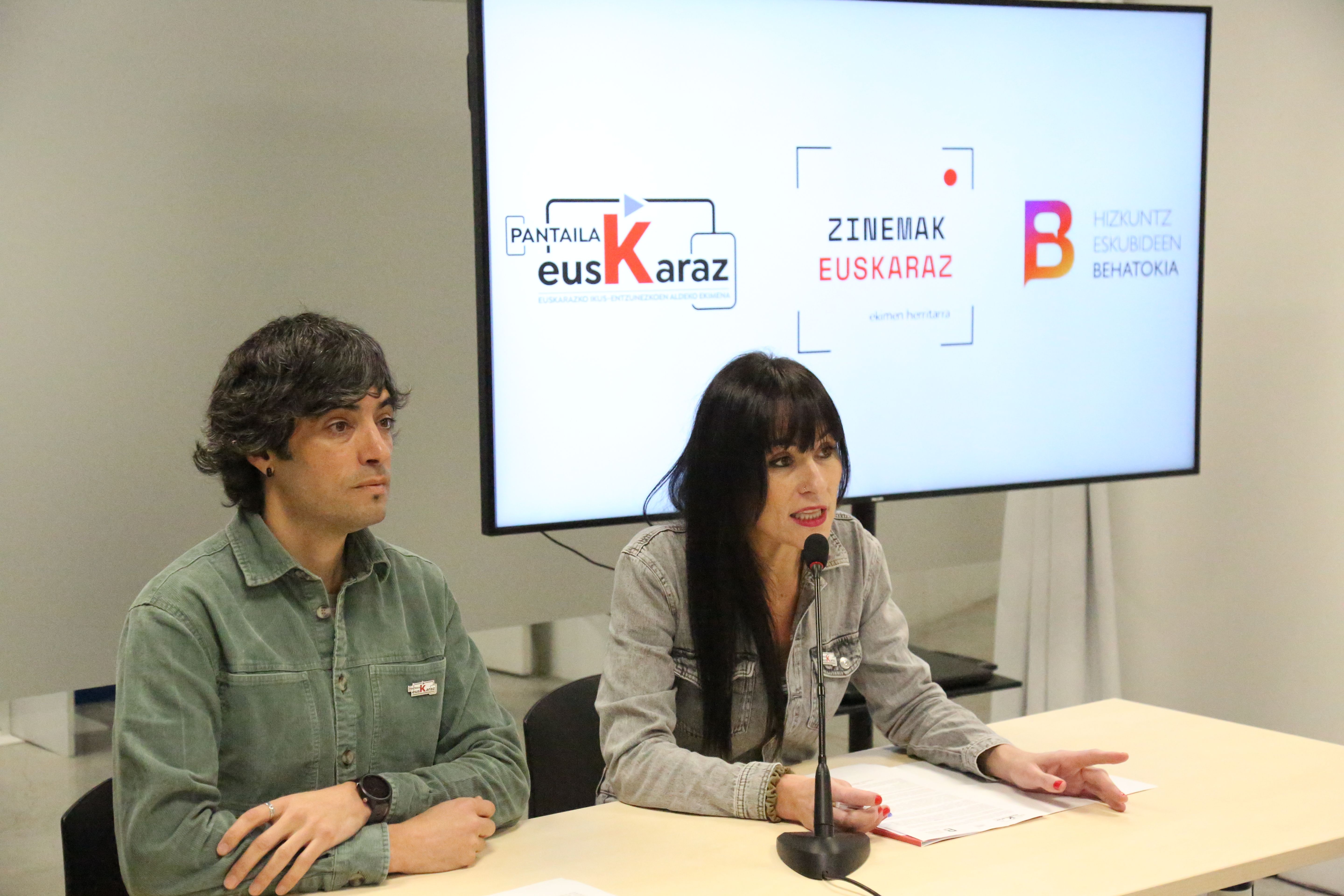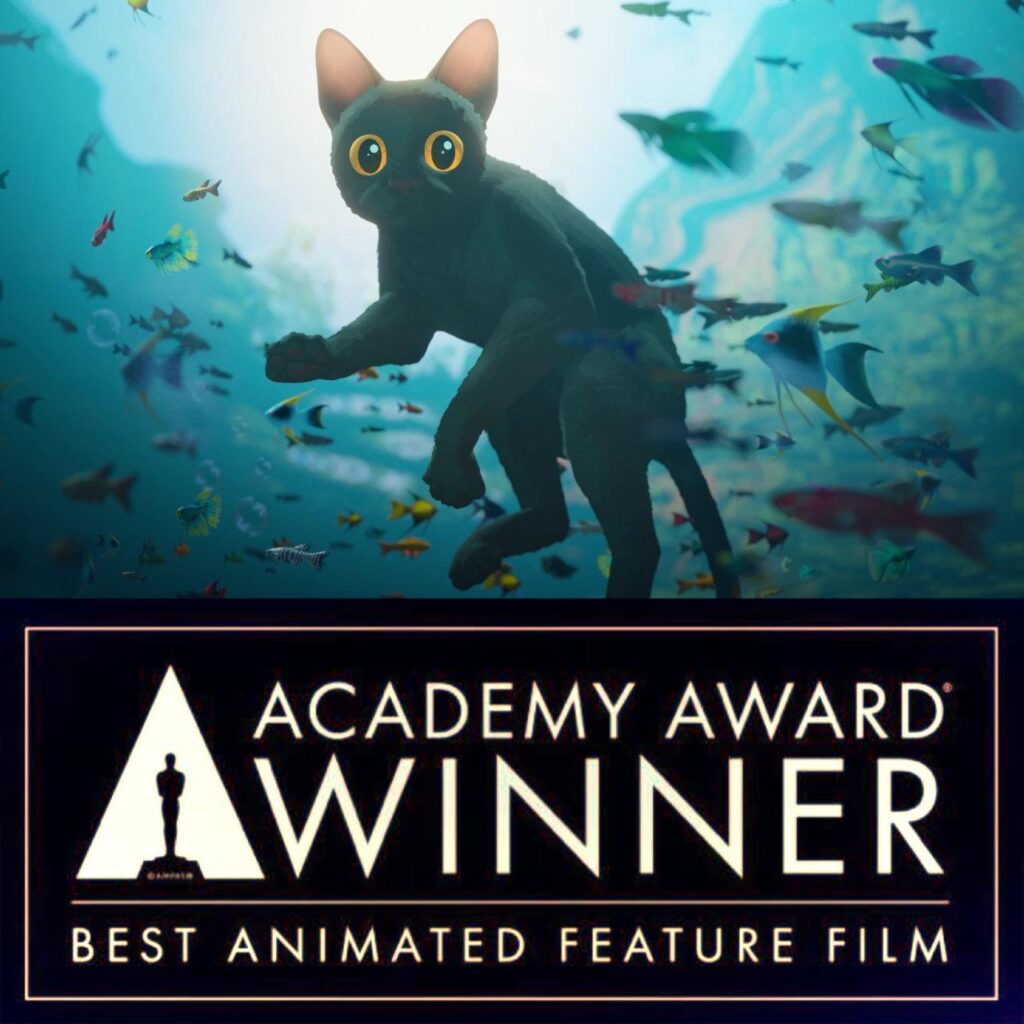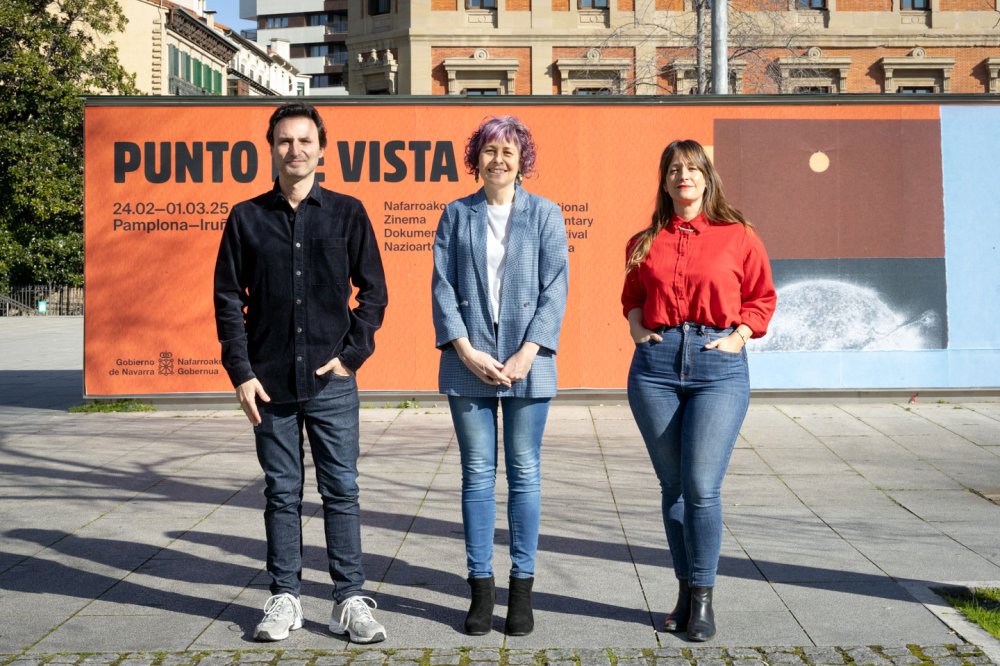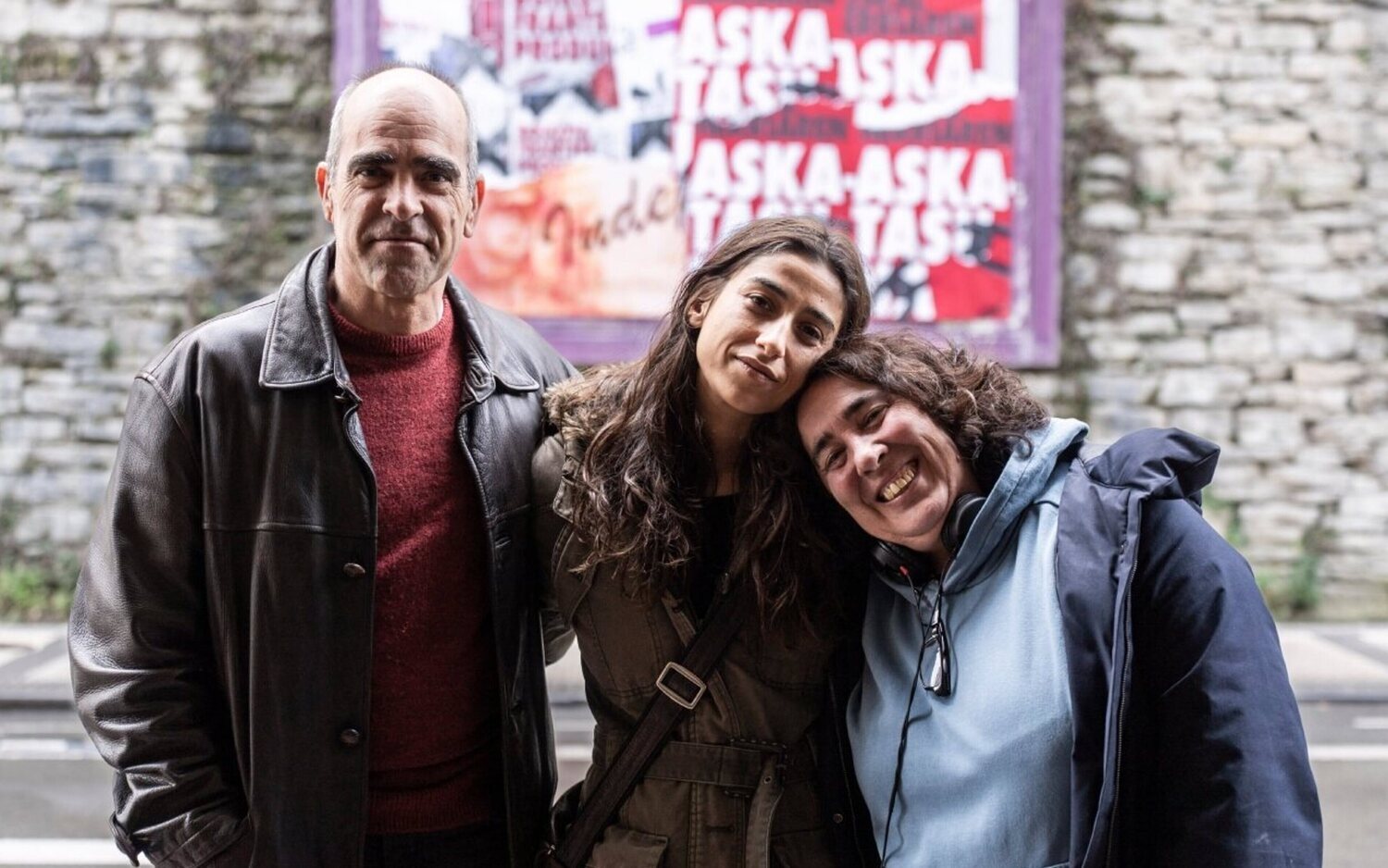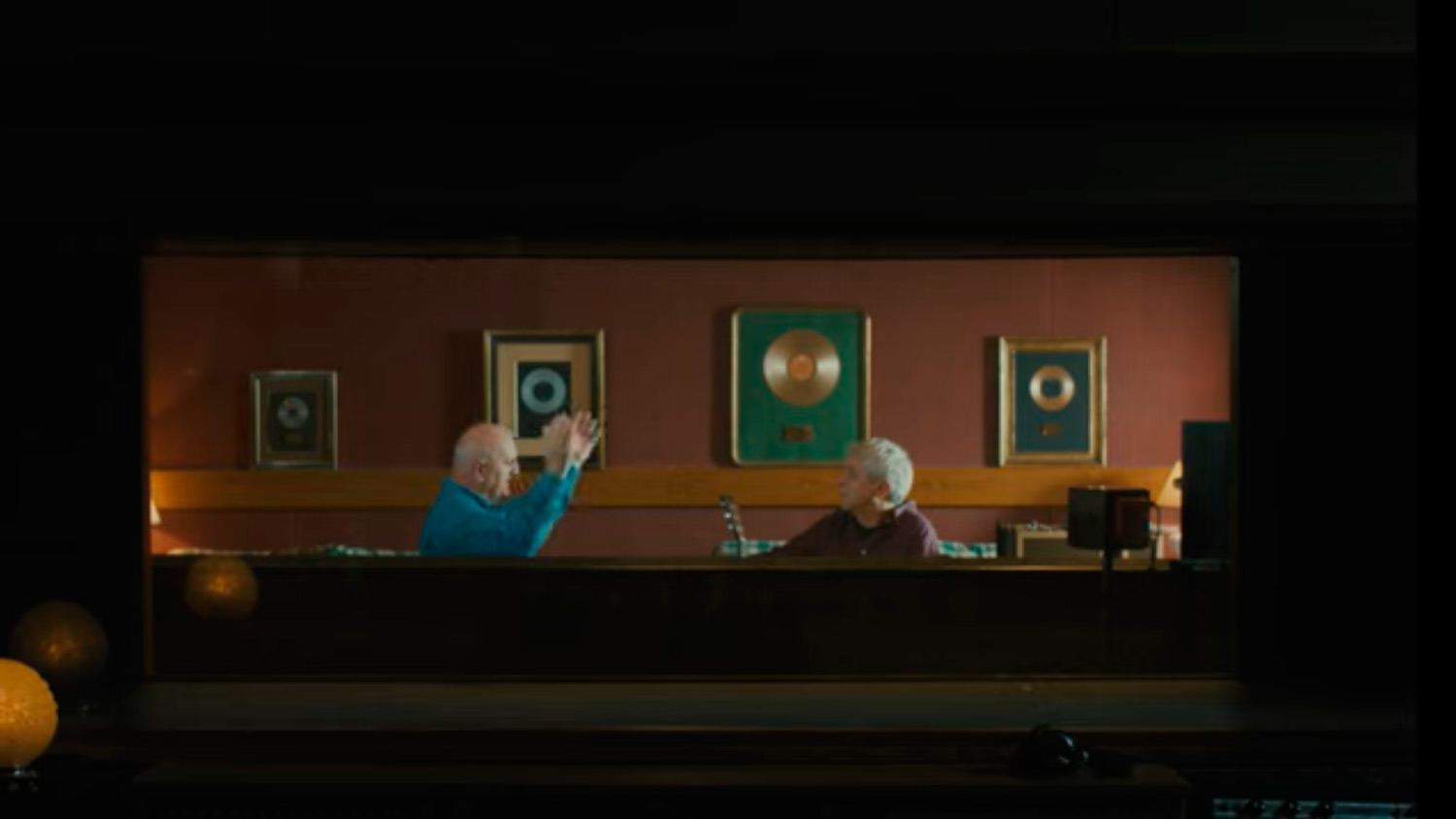"In the intimacy of each of us there is a common intimacy"
- Six years after leaving prison, Arantza Santesteban (Pamplona, 1979) realized the dimension he had in his hands for the first time. It was then that he began to take shape 918 nights, a film that narrates his militant experience. Since its premiere last year, it has received major international awards: The Best International Film of DocLisboa, the Best International Documentary of the Torino Film Festival and the Latexos Prize of Novos Cinemas of Pontevedra. The premiere in Euskal Herria will take place at the Punto de Vista festival that will be held from March 14 to 19 in Pamplona.
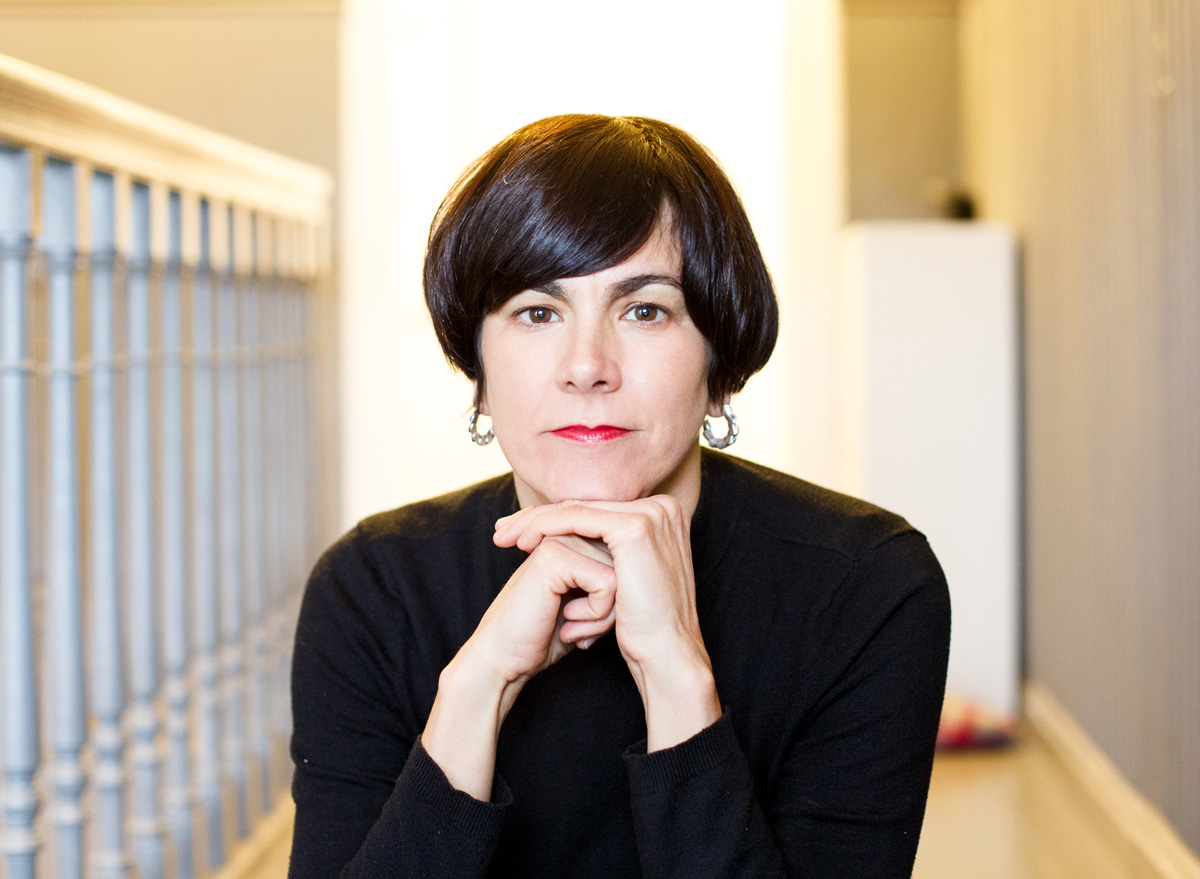
The film narrates the process of a feeling of strangeness. In the same jail, you start to feel strange with that exemplary prisoner you should have: “Manifeta’s slogans don’t serve me too much to support everyday life.”
I want to think that many people have felt oblivious. Identities close a lot in demanding militancies with a high degree of commitment, which may have logic, even if I don't like it. The model of militancy that I know has been very dependent – and I too – on narratives. When I went through the letters and the pictures of the jail, I felt it in a very strong way: that I didn't have much opportunity to think about what it was like, nor to realize the crats that could create in me the criteria of this collective, both those who said and those who didn't tell me. The prison landscape is absolutely strange, you can't go anywhere else, you're with the people who've touched you, you just have material objects... you're just with yourself. In that moment, or in the narrative that you've supported yourself, or you realize that storytelling isn't worth too much -- my case. In that poor prison landscape, there's a very powerful human landscape, and I slowly came up with other things. It's hard to tell, but I know it wasn't just my process. In jail, I didn't make all of those cots, but I felt really uncomfortable. Then I've talked to more people, and I've shaped them. But at the time, I felt that I was not a good militant, that I didn't measure. There was an uncommented demand, a way of being, a sentence between good and evil, also within me, because I was part of it.
The film tells of an awareness of the devices with which the Left Abertzale builds narratives. Once you've realized them, you can't see anything the same.
When you realize the device, you can understand that that device is necessary and decide that you want to continue feeding, or suddenly, you are not able to participate in its repetition. Is that moving away from your ideological positions? I do not think so. This is a moment of awareness – in my case a moment of crisis – it has some doubts, and the collective often cannot answer it – it does not have time, it is not its function, it does not have chronic structures to respond to them. Even if someone commits crak on one level or another, as the collective works, it will often be rejected. I am not simply calling for political disappointment, but for the opportunity for doubt. I believe that at this moment there is nothing more political than to take care of the crisis in the collective, foreseeing that rest, distancing or loneliness, which has been raised so much by feminism, can be part of the militant commitment. The tradition we have is another one. The forms of militancy of the 20th century. But the collective cannot have a structure that sustains someone who is always active. That's crazy.
The film is counted from a totally subjective point of view, but you claim precisely the political dimension of this subjectivity.
Although a very strong voice appears in the first person, I did not want to make an intimidating film – as if the only place where to articulate a different political discourse was intimacy. I've used the first person, because I know what's said in the movie crosses me, but in the intimacy of each of us there's a common intimacy. It is true that people who have been in prison have not experienced these concerns. They have experienced a very strong, very hard and nice collective experience. It was not my case, nor was it the case of so many others. Something broke out to me, and I had to look for new ways: to what extent we had to respect the mandates of the collective and defend some aspects that are part of my personality without hurting anyone. I call that crisis, but I claim the political side of that crisis. Collectivity needs responsible individuals, and in my personal experience it has been resented too often on behalf of the collective who has had some dissonance or doubt beyond structured discourses. I'm worried that the Left will become nostalgic and bizarre, that they don't want to change the ways of doing and thinking. This can impoverish a lot as a group.
"I'm worried that the left will become nostalgic and disillusive."
One of your demands is the fight against stereotyping. That the characteristics that make us unique to each of us cannot be overlooked without further ado.
Yes, but also breaking the stereotype can become a stereotype. In short, we work through these stereotypes, images, metaphors…, and it would be very pretentious to try to break all the stereotypes. I've tried to build a narrative form that doesn't make anyone comfortable. I recently started making films, but I see that there are some covenants or conventions that I have not said. I wanted to fight against them, but it's been a very intuitive, not rational attitude. That is what I demand from my process: autonomy, the ability to make decisions above conventions.
At first he departed from the prison letters. Gradually you have resorted to other resources. What have been the most important formal decisions taken during the process?
At first I thought it was going to be a film based on prison letters. But when I read those letters again, I realized that they were very “mediated” and that they were not enough to tell everything I wanted to tell. The epistular issues were very romantic, probably because of the great figures who have been in jail – Mandela, Gramsci, etc. When I was starting to read at six years old, I thought that these letters would find great political and existential elaboration. I read them over and over again, and there was no trace of it, except in a letter that I used in the film. In most cases, the letters passed through the filter of the prison censorship, which conditioned their form. But not everything is the responsibility of censorship: the code between us was very repetitive. We said goodbye, “we’ll win, we’ll stick and go ahead,” and so on. All of a sudden they became strangers to me. I understood the context in which they were written, but at the same time I saw them for the first time in my militant life far away, farther than ever, and that remoteness surprised me. In the letters, I found an aesthetic that was repeated over and over again, that didn't let me see where the depth really was, what real people felt. I found few things -- starting with the ones I wrote -- that went a little bit beyond standard thinking. There I realized: these letters are not enough.

Then, when he was in jail, he went to the photos sent to him by the people.
The outsiders, with all affection, want to teach the prisoner their world so he doesn't forget it. It has been one of the most important affective experiences I have experienced, very strong and I am still very excited – I believe that the Left must demand a logic of affection, solidarity, which keeps the other in difficult situations. On the other hand, I realized that in the photos everything was also very standardized, and that some elements are constantly repeated: mobilizations, parties, rural landscapes, children of friends, newborns… There arose the question – which I have not yet given a single answer –: what image does the prisoner have to have? These can be, but they can be others. Although the intention is very beautiful, I think little thought has been given to it. In short, with these images the prisoner cannot break the real wall, and there is a chasm between the exterior and the interior: as the reality of the prison is practically impossible to say – unimaginable, as Georges Didi-Huberman would say – the exterior has not enough reference to understand what is happening inside, and the interior does not have sufficient means to express what it lives. So the inner remains a mere receiver of the outside world, and we believe that all it needs is to absorb the outside life. I say this in the film: I needed to tell my intimacy, what interior life was like… Have we worried about the external at any time about the reality of the inmates? Despite the fact that so many people have been in jail, there have been very few thoughts, beyond the romantic logics: what the prisoner feels, what the power relations are, how immigrants are, what sexuality is, what desire is, what is the absence of nature… Just like in the case of tortured people. If we haven't responded to that, it's because we're still in a romantic militant narrative, in which jail is not representative as a penitentiary institution, because what matters is that the political prisoner is at all times the sustenance of this narrative.
Another moment of strangeness is welcome. When you charge policemen, you felt a certain fluidity in the midst of the chaos, because you freed yourself from launching the speech…
In prison, he turns around at that moment of welcome. But there too, inevitably, are pre-established conventions. It is perfectly understandable, with such a welcome it is impossible to prepare each from scratch. Every community needs survival patterns. These are the collective rules that are necessary, more so in a movement like the one I've been involved in. But when those conventions have to materialize from each other's subjectivity, little crak emerges, perhaps not everyone, but me. For those of you who have been around for so many years, going out on the street is a huge, even cognitive impact. I remember driving up the car and feeling speed, you've forgotten what it's like to go 120 kilometers an hour. In this situation, you get to the neighborhood and having to wait for the aurresku to dance to hug friends they haven't seen for so long is quite orthopedic. I know that it is part of that liturgical convention, which may have to be so, but I am not so interested in talking about intelligibility, but rather about the dissonances that these situations produce. From my subjectivity, I try to tell how unnatural these situations were. Or when I say that it is one of the nightmares of the political prisoner the discourse he is going to make when he leaves... that is what is said in the prison patio. The prisoner thinks before he takes the speech. For most people, it's headache. I wanted to ironize a little bit about this. In the film, I don't even legitimize the police load, I just say I really thought about it. “Buf, how good, I’ve freed myself from speech.”
"To deepen a culture is to treat your conflicts"
The question that goes through the film does not fit into the uppercase policy, but focuses on “human” issues: what kind of people are we?
Sometimes ideological narratives don't allow us to honestly answer human questions, and on the contrary, asking human questions confronts you with a truly political dimension. Our entire political paradigm has been built in dichotomies, and hence simplistic responses emerge. Revolution or death? There's a revolution. Homeland or death? The homeland, of course. The questions raised here do not release dilemmas from our lives. On the contrary, questions become much more complex when turning to the human side. The ethics of the left cannot act only on the level of conviction, it must be able to answer very human questions. When these questions are raised, there is always a fear: if we begin to talk about our wounds, discomforts and fears, we will not fall into that castle that we have built. Well, I think we should take that risk.
Possibility of falling from the castle?
I don't think it's going to fall. But even if we fall, that's what makes us strong. The great thinkers on the left have addressed these issues: they do not think about strengthening the structure of the castle, but about opening up all those doubts. I remember that not long ago in a conference on Basque culture someone talked about the deficiencies and fears of Basque culture, and that if this continues, he risks losing the people’s adherence. I am totally against that speech. A culture gives depth to the treatment of its conflicts. For the same thing on the left: avoiding conflicts cannot build political subjectivity. Or look at Judith Butler, when he's thinking about gender, he's dealing with all the complexities of the matter. It takes us to extreme places, but then it extends our hand to help us think. Feminists tell us that we've been stuck in gender difference, and then maybe binary doesn't exist. That's throwing down a whole thesis that has built a movement. But for me, that's the compromise.

Has it affected you to think about the reception of the film?
Yes, I have been influenced by the reception, and the perception of what has affected me also gives me what to think. I've been afraid to make the movie because I didn't want to offend the people I want. If you take something out of my experience, that is that through affections you can sustain something. In the workers’ struggles of the 1970s, in the creation of the ikastolas, there were these values: “Let’s get together to do something, and if someone suffers, let’s be responsible for it.” Claiming this energy is important to cope with the coming life. On the other hand, I believe that the receiver is still very conditioned by the great stories, often very simple and structured. Either you tell the epic aspects of the experience, or if you make a small question with the story, it goes directly to the other side: “This is no longer where it should be.” Any displacement is understood in terms of opposition. But there's also room beyond the rigid sites set, and although my calling has not been to create that other place -- this film is not going to get it -- I like to leave people who don't know very well what to do with what they've seen.
The descriptive tone of the film is striking. It's very moderate, as if I tried to avoid any temptation to influence the emotions of the receiver.
The premise for writing the voice off has been to move away from emotional discourse. This is a political movie, it's not a place to heal my emotional trauma. The film aims to aesthetically capture a feeling that I believe is part of a political process. Where have I headed? A great process of language distillation. He said it in the first version: “I’m happy” or “I’m sad”. Irati Gorostidi has helped me detect it. He said: “When you find it, it ignites an emotion, a red alarm.” I think there are many more details of what was experienced in that descriptive view than in my emotional elaboration. I'm not interested in using elaborate thinking, or making the viewer feel a certain emotion. Descriptions leave more space for the viewer to walk their own path or to help me along my path.
On the scene recorded in Berlin, some friends realize your jail accounts and seduces you. So much so that they want to make a movie about you.
In this scene, I'm a little tough on myself. But I am aware – and to say this is a little problematic – that you can shine in certain contexts and in front of certain listeners if you tell that you have been in jail. With that, I don't want to banish jail, but I've made shine, and I've realized that I can produce that glitter, and I say it in the movie itself. “I realize, that’s there, I’ve had that competition.” Some people have told me: “If you don’t want to make any glitter, don’t make movies.”
And what answers that?
I don't know, I've had a hard time making the movie. On the one hand, I needed to bring to a movie these conflicts lived, because I think that my current affinity with this collectivity is to point out some mechanisms of that collectivity. But it's also hard to open up your own experiences like this. I've been afraid of welcoming. If I had wanted to make a self-fulfilling film, I would have done something else. But I've taken risks, and I think it's a commitment to the willingness to say something and the need to seek meaning from my experience.
No other land dokumentalaren zuzendari Hamdan Ballal kolono sionistek jipoitu zuten astelehenean bere herrian, beste hainbat palestinarrekin batera, eta Israelgo militarrek eraman zuten atxilo ondoren. Astarte goizean askatu dute.
Donostiako Tabakaleran, beste urte batez, hitza eta irudia elkar nahasi eta lotu dituzte Zinea eta literatura jardunaldietan. Aurten, Chantal Akerman zinegile belgikarraren obra izan dute aztergai; haren film bana hautatu eta aztertu dute Itxaro Bordak, Karmele Jaiok eta Danele... [+]
35 film aurkeztu dira lehiaketara eta zortzi aukeratu dituzte ikusgai egoteko Euskal Herriko 51 udalerritan. Euskarazko lanak egiten dituzten sortzaileak eta haiek ekoitzitako film laburrak ezagutaraztea da helburua. Taupa mugimenduak antolatzen du ekimena.
Pantailak Euskarazek eta Hizkuntz Eskubideen Behatokiak aurkeztu dituzte datu "kezkagarriak". Euskaraz eskaini diren estreinaldi kopurua ez dela %1,6ra iritsi ondorioztatu dute. Erakunde publikoei eskatu diete "herritar guztien hizkuntza eskubideak" zinemetan ere... [+]
Geroz eta ekoizpen gehiagok baliatzen dituzte teknologia berriak, izan plano orokor eta jendetsuak figurante bidez egitea aurrezteko, izan efektu bereziak are azkarrago egiteko. Azken urtean, dena den, Euskal Herriko zine-aretoak gehien bete dituztenetako bi pelikulek adimen... [+]
Otsailaren 24tik eta martxoaren 1era bitartean, astebetez 60 lan proiektatuko dituzte Punto de Vista zinema dokumentalaren jaialdian. Hamar film luze eta zazpi labur lehiatuko dira Sail Ofizialean; tartean mundu mailako lau estreinaldi eta Maddi Barber eta Marina Lameiro... [+]
A conference for architects has just been held in Madrid to discuss the crisis of the professional architect. They have distinguished the traditional and contemporary way of being an architect. What is traditional? From the epic architect who appears in The Brutalist, where... [+]
Itoiz, udako sesioak filma estreinatu dute zinema aretoetan. Juan Carlos Perez taldekidearen hitz eta doinuak biltzen ditu Larraitz Zuazo, Zuri Goikoetxea eta Ainhoa Andrakaren filmak. Haiekin mintzatu gara Metropoli Foralean.











